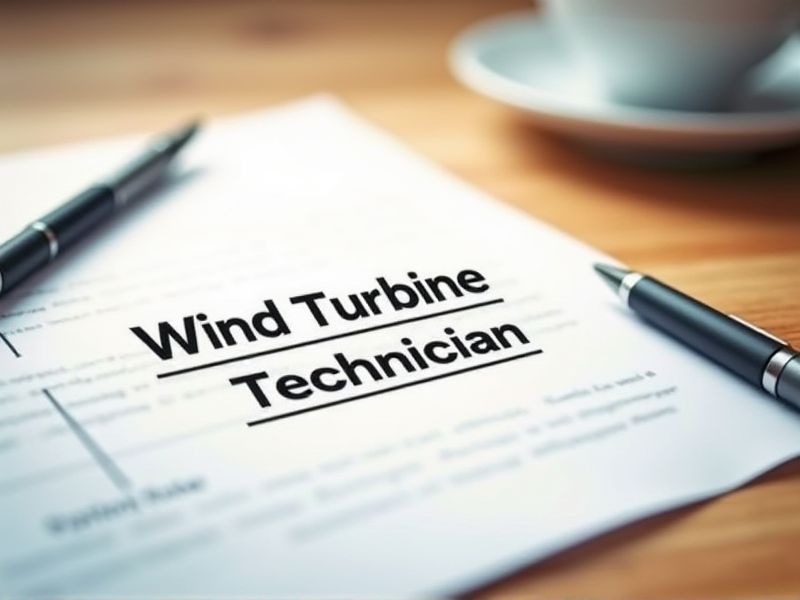
Wind turbine technicians require specific certifications due to the complex and hazardous nature of their work, which involves maintaining large and intricate machinery at significant heights. These certifications ensure that technicians possess the necessary knowledge to adhere to safety protocols and effectively troubleshoot mechanical or electrical issues. Employers prioritize certified candidates to minimize risk and enhance operational efficiency. Some critical certifications for a wind turbine technician include OSHA safety certification, basic safety training, and specialized electrical licenses.
GWO Basic Safety Training
The Global Wind Organisation (GWO) Basic Safety Training is essential because it equips wind turbine technicians with vital safety skills, reducing accident risks. It addresses key areas like first aid, manual handling, and fire awareness, which are critical in the challenging environment of wind farms. Training ensures technicians are prepared to handle emergency situations, thus decreasing potential downtime from accidents. Compliance with GWO standards is often a prerequisite for employment, reflecting industry demand for a skilled, safety-conscious workforce.
GWO Working at Heights
Wind turbine technicians often work at significant heights, making GWO Working at Heights training essential to ensure their safety and competence in elevated environments. This training specifically addresses the risks associated with high-altitude tasks, teaching technicians how to properly use harnesses and fall arrest systems, which reduces the risk of falls. Additionally, the course emphasizes emergency procedures for aerial rescues, preparing technicians to respond effectively to potential accidents. By integrating this training, the wind energy sector can maintain high safety standards, ultimately minimizing workplace accidents and their associated costs.
GWO Manual Handling
Manual Handling training, such as that provided by the Global Wind Organisation (GWO), is essential for wind turbine technicians to minimize the risk of injuries associated with lifting and moving heavy components. The training ensures technicians adhere to safety protocols, reducing the occurrence of musculoskeletal disorders. Proper handling techniques enhance operational efficiency, as technicians can perform tasks more effectively and with less physical strain. GWO Manual Handling training also ensures compliance with safety regulations, which can lead to fewer workplace accidents and potential legal issues.
GWO Fire Awareness
GWO Fire Awareness is crucial because wind turbine technicians often work in remote locations far from emergency services. A fire on a wind turbine can cause costly damage and significant downtime, impacting energy production. Proper training reduces the risk of fires starting due to human error or equipment malfunction. Knowledge in fire prevention and response ensures technicians' safety and secures the structural integrity of the turbines.
CPR and First Aid Certification
Wind turbine technicians often work in remote and hazardous environments where immediate medical assistance may not be readily available, making CPR and First Aid certification crucial for quick response to emergencies. High-altitude work poses the risk of falls and other serious injuries, where certified personnel can help stabilize conditions until further help arrives. Weather conditions like severe winds can lead to accidents, reinforcing the need for technicians to be prepared with life-saving skills. Electrical components add another layer of risk, necessitating that technicians are trained to handle potential electrical injuries safely.
NFPA 70E Electrical Safety Certification
Exposure to high voltage systems in wind turbines necessitates the NFPA 70E Electrical Safety Certification to mitigate electrical hazards. This certification ensures technicians are knowledgeable about safe work practices, reducing risk of electrical burns and shock. Compliance with NFPA 70E standards helps companies meet legal safety requirements, avoiding potential fines and legal issues. Possession of certification can enhance a technician's credibility and employability in the renewable energy sector.
OSHA 10-Hour Construction Safety Certification
Wind turbine technicians often work at significant heights and in varying weather conditions, increasing the risk of falls and other accidents. OSHA 10-Hour Construction Safety Certification provides essential training on fall protection and hazard recognition, which are critical for safety in this field. The certification enhances awareness and preparedness for emergency situations, reducing potential injury risks. Companies value this certification as it aligns with federal safety regulations, fostering a safer work environment.
Confined Space Entry Certification
Certification for confined space entry is crucial for wind turbine technicians because wind turbines often have enclosed areas that pose safety risks, like limited ventilation and restricted egress. Without proper certification, technicians may not be adequately prepared for hazardous conditions such as low oxygen levels or the presence of toxic gases. Proper training ensures technicians can use safety equipment effectively and respond to emergencies. Certification reduces the likelihood of injury or fatalities, enhancing overall worker safety and compliance with occupational safety regulations.
Renewable Energy Technician Certification
Renewable Energy Technician Certification provides essential knowledge and skills required for working safely and effectively with wind turbine systems. By certifying technicians, it ensures a standardized level of competency across the industry, reducing error rates and equipment failures. With this certification, technicians gain recognition from employers and enhance job prospects in a competitive field. Regulatory and safety standards often mandate certification to comply with legal and environmental guidelines, which further underscores its necessity.
Wind Energy Systems Maintenance Certification
Wind Energy Systems Maintenance Certification ensures technicians possess the specialized skills necessary to efficiently maintain and troubleshoot complex turbine systems. Certification typically leads to a reduction in downtime and repair costs because technicians are trained to identify and address issues before they escalate. The certification often meets industry standards, thus improving safety protocols and reducing the likelihood of accidents. Employers generally favor certified individuals, which results in increased job opportunities and potential career advancement for technicians.
Summary
By obtaining certifications, you as a Wind Turbine Technician can significantly increase job prospects and marketability. Certifications validate your skills, making employers more inclined to trust your expertise. With certified credentials, you may also experience opportunities for higher wages due to recognized proficiency. Furthermore, the enhancement of safety and technical skills through certification programs boosts your professional confidence and performance.
